Tennessee Valley Woodworkers
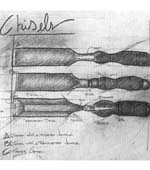 Vol. 18/ Issue 6
June 2003
Editor: Tom Gillard Jr.
Vol. 18/ Issue 6
June 2003
Editor: Tom Gillard Jr. 
Tennessee Valley Woodworkers
 Vol. 18/ Issue 6
June 2003
Editor: Tom Gillard Jr.
Vol. 18/ Issue 6
June 2003
Editor: Tom Gillard Jr. 
Meeting Notice:
The next meeting of the TN Valley Woodworkers
Will be held, June 17th at 7:00 p.m. in the
Duck River Electric Building, Decherd, TN
All interested woodworkers are invited!
The following people have agreed to serve as contacts for their particular skills. If you have questions, suggestions for activities, or other comments relating to these skills, please call these folks. Their interest is to help the club better serve their area of expertise. Your participation with them will help them achieve that goal.
Design: Alice Berry 454-3815
Finishing: Phil Bishop 967-4626
Turning: Tom Church 967-4460
Carving: Harry May 962-0215
Sharpening: Bob Reese 728-7974
Joinery: Ross Roepke 455-9140
Health and Safety: Maurice Ryan
962-1555
![]()
List of Club Officers
![]()
GOD BLESS AMERICA!

Please remember, in your thoughts and prayers, all our Troops in the
Middle East and those on the way home.
FOR MEMBERS ONLY
Don't forget about the club give-away this year.
We have a Tormek sharpening machine for some lucky winner at the Christmas
party.
H.B. Rust of North Side Clocks in Manchester.
CLUB PICNIC
That was some Picnic. Go to the web page "GALLERY" to view
the pictures. This "woodchuck'n" club sure does have some good times...
SHOW AND TELL:
Geoff Roehm brought in 2 Ukuleles one was curly Mango, Brazilian rose wood and the other was Alaskan cedar. He finished with a mixture of nitrous and Deft and French polish for the filler. This wash coat of orange shellac and let it dry and than dip rag in mixture and rub around in a circle. It will micro braid to the wood and be just the right color. He will see that instructions on how to do this are put on our Web Site.
Maurice Ryan made a rod holder to use on his boat. It will mount on the bulkhead. He used PVC pipe and heats the edges and than drove a wine bottle over them to form the lip. Rods will not bounce out of this.
Bill Duncan made a plant stand and it has a smaller top than some of the others since he forgot to check his index on the joiner and the top ended up with a curve in it and he had to saw a part and do over. He also put a skirt on his. He brought in the clamp arrangement he made to clamp the stand together.
Bob Beswetherick brought back the mandolin that he brought in last time. He redid the finish, which he is much more satisfied with. It is a sunburst effect and he used brown leather dye and thinned it way down. He sprayed the finish. He also played a short tune on it for us to hear the tone.
Jim Roy showed a leg he had made out of Cherry.
Henry Davis showed the plant stand that was made by the members that attended his workshop. He asked that the members that attended sign it. He also thanked Tom Cowan for the assistance with the workshop.
Mary Ellen Lindsay brought in the plant stand she made at the workshop. It was made out of popular and she carved it on the top and the sides. She put a gel satin varnish on it. She also brought in a stool with a carved top.
Barbara Keen showed a plant stand that she made at the workshop. It was a Black Walnut stand with satin polyurethane finishing.
Bob Leonard brought in a scraper it was made from an old band saw blade. He made a holding jig out of wood so that he could hold the blade in for sharpening it.
Newt Wright brought in a clock that he had made out of Mahogany.
Doyle McConnell found a red maple tree and it was so big he did not want to get it but was out voted by his wife and Karen so he got it. He showed a couple of bowls he had made out of it. He also showed a pecan bowl. He also showed a bowl vessel he has started from a root.
Karen Kerce made 2 nice bowls out of spalted maple. One she put epoxy in the holes but did it after the bowl was done and left her a lot of sanding and hard work to finish it. Next time she will put the epoxy in before she is finished turning. She also brought in an old Cigar box that she made a top for and finished it.
Matt Brothers made a knock off from an antique spool chest for a customer. It was made of Black Walnut. Tom Cowan turned the legs for it since he does not have a lathe. He finished with Danish Oil and deft spray lacquer.
Yew
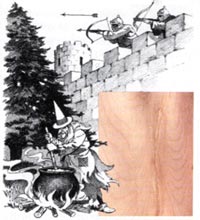
Yew, a softwood, has branches to the ground and provides dense shade.
A
tough wood, it played a major part in wars of the Middle Ages.
In Europe and the United Kingdom, the densely needled evergreen called
yew stands
vigil in churchyards and cemetaries. The wood resists decay so well
that clergy
traditionally cited it as a symbol of eternal life. But because the
seeds of its fruit and
withering foliage contain poison, it may have been planted in these
enclosures to
protect the living—both animals and man. Yew, in fact, was considered
fatally toxic in
Shakespeare's time. He cited "slips of yew" as part of witches' brew
in Macbeth.
While those who partake of yew may not see another sunrise, the tree
itself lives a
long time and grows to enormous size. A yew growing at Tandridge
Church, in Surrey,
England, measures 45' in diameter, and experts estimate it to be 2,500
years old!
The wood of the yew, because of its toughness, has always been
suited for abuse-prone posts and furniture. Yet, yew
played a much more important role in history.
The formidable English military weapon of the Middle Ages—the
longbow—was made of yew. In fact the law decreed
only royal longbowman could have yew bows. Commoners had to settle
for ash and elm. At times, yew became scarce,
and the English had to import their bow wood from Spain and Italy.
At the Battle of Crecy on August 26, 1346, the
English devotion to yew longbows became well-justified. The rapid-firing
longbowmen destroyed the French calvary and
carried the day.
In America, the Scottish botanist David Douglas discovered a variety
of yew along Oregon's Columbia River in the
1800s. Indians there were using it for bows, too!
Photograph: Bob Calmer
Illustration: Jim Stevenson
(WOOD Online)
![]()
![]()
The Stones River Woodworkers will meet on June 24, 2003 at 7:00 PM at the Broad Street Shoneys Restuarant in Murfreesboro, TN. If you would like to join us for supper, please come at 6:00. Calvin Duggin,retired MTSU professor, will present our program. All interested woodworkers are invited.
Harry Hodge, Stones River Woodworkers Club
![]()
FREE Woodworking Charts
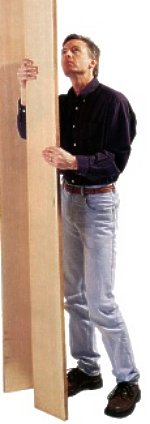
SEE YOU ON THE
17th!!
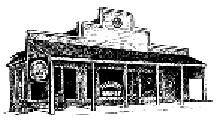
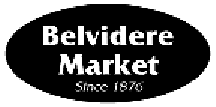
10 % OFF Fine Woodworking
Books from Taunton Press
…We’re open Monday thru Saturday